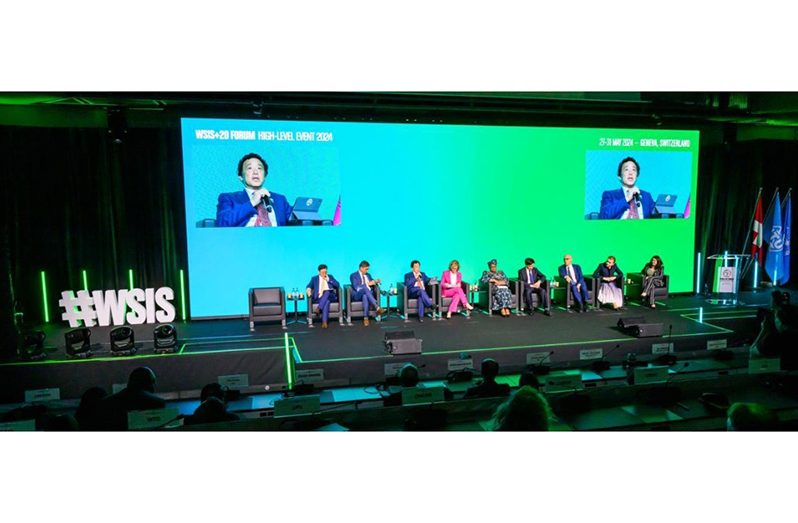–FAO Director-General addresses UN Leaders Dialogue on the progress and future of digital cooperation
THE United Nations has a key catalytic role to play in leveraging the power of digital technologies, which is of utter importance particularly in rural areas, for the achievement of the Sustainable Development Goals (SDGs), the Director-General of the Food and Agriculture Organization of the United Nations (FAO) QU Dongyu said today. He addressed a High-Level United Nations Dialogue on the Progress and Future of Digital Cooperation.
In his remarks, Qu noted that agriculture is one of the world’s biggest challenges, because digitally rural areas are lagging behind in any country of the world, and it is time to bridge this digital gap between urban and rural areas.
“Digitalisation is reshaping our world at its very core, and is having a deep impact on our societies and economies, and our mindsets,” he said stressing that digitalisation may have a significant positive effect on agri-food systems transformation to make them more efficient, more inclusive, more resilient and more sustainable to serve for four betters: better production, better nutrition, a better environment, and a better life, leaving no one behind.
However, he pointed out that new emerging issues related to safe and ethical use of digital agriculture should be taken into consideration. This is crucial “to ensure a holistic perspective and an open, free and secure digital future for all as outlined by the Global Digital Compact and other key UN-led initiatives towards which we are working together.”
The Director-General reiterated FAO’s commitment to continue working closely with all stakeholders in an efficient, effective, and coherent manner to establish global digital ecosystem to address global challenges.
As an example of successful Artificial Intelligence (AI) joint endeavours, Qu cited the Rome Call for AI Ethics – a joint initiative led by FAO, the Pontifical Academy for Life, the Italian Government alongside with IBM and Microsoft, which aims to promote ethical use of AI technologies.
The Director-General invited all the participants to the fourth edition of the FAO’s annual World Food Forum in October 2024. He pointed out that last year, thanks to the digital technologies and virtual participation, 65 000 people were able to attend the event and share their experiences including on AI technologies to effectively scale-up agri-food systems transformation.
Other panelists at the event included Masahiko Metoki, Director-General of the Universal Postal Union (UPU); Ngozi Okonjo-Iweala, Director-General of the World Trade Organization (WTO); Volker Türk, United Nations High Commissioner for Human Rights (OHCHR); Tatiana Molcean, Executive Secretary of the United Nations Economic Commission for Europe (UNECE); Sameer Chauhan, Director of the United Nations International Computing Centre (UNICC); Celeste Drake, Deputy Director-General of the International Labour Organization (ILO); and Ciyong Zou, Deputy to the Director- General and Managing Director of the Directorate of Technical Cooperation and Sustainable Industrial Development, United Nations Industrial Development Organization (UNIDO). The discussion was moderated by Doreen Bogdan-Martin, Secretary-General of the International Telecommunication Union (ITU).
The session was part of the UN’s World Summit on the Information Society (WSIS) which brought together UN leaders to present their respective mandates within the WSIS process and their perspectives on digital for development. Through WSIS, the UN facilitates dialogues, fosters partnerships, and promotes inclusive policies to bridge the digital divide and ensure no one is left behind. (FAO)



.jpg)








